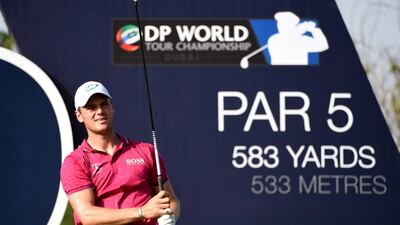About US$1.76 billion is spent on sports and sport-related events in Dubai every year, bringing a total economic uptick of $670 million to the emirate, according to a new report from the accountancy firm Deloitte.
It states that, of the total amount spent, approximately $709m goes on seven major events – golf’s DP World Tournament and the Dubai Desert Classic, horse racing’s Dubai World Cup, the Dubai Marathon, Dubai Duty Free Tennis Championships, cycling’s Dubai Tour and the Emirates airline Dubai Rugby Sevens tournament.
A further $255m is spent on facilities and $172m on the 14,500 people working in the industry. The remaining $627m is judged as indirect and induced impact, ie locally generated business-to-business spending, as well as consumer spending from locals working in the industry in Dubai.
When the impact of local trading is stripped out, sport is estimated to have a total economic impact of $421m per year, with golf the single biggest generator. It contributes $131m, or about 30 per cent, of the total.
The three best attended events are the Dubai Duty Free Tennis Championships, the Dubai World Cup and the Rugby Sevens. Between them, they attract about 250,000 people, with the rugby event alone attracting 100,000 fans.
This week’s DP World Tour Championship – the climax to golf’s European Tour Championships – draws approximately 50,000 spectators.
Speaking at the event’s opening day yesterday, Nick Tarrant, the Dubai-based director of European Tour International, said the industry also supports airlines, hotels and the hospitality sector.
Of the $131m generated by golf, $80m is generated by the two major events, $38m by golf tourism and $120m by its golf clubs. “There are 400,000 rounds of golf a year played in the golf clubs in Dubai – 10 per cent by international guests. In the UAE, we have approximately 10,000 local golfers,” said Mr Tarrant.
“What’s exciting about golf is our mantra is ‘play where the pros play’. I’m not being critical of other sports, but I’m not sure that you come to Dubai to play tennis or horse race.”
Dubai currently has nine golf clubs offering a total of 11 courses. A series of others are in the pipeline including championship courses at Akoya By Damac and Akoya Oxygen, and a new project within the Golf district at Dubai South.
Speaking at the Aviation Investment Summit UAE last week, Tahnoon Saif, vice-president of aviation at Dubai South, said that it was due to announce “a big project” that would take up about 50 per cent of the land at its 15 square kilometre golf district. It will be a joint venture with Emaar Properties.
Julian Small, managing director of golf club operations at Jumeirah Golf Estates, which hosts the DP World Championship, said that he did not think that the new courses would create an oversupply of capacity.
“Golf courses are a great way to create amenity space in low- density, quality environments. There is room for growth. If golf reaches out to young people, to ladies and families, it will continue to deliver.”
mfahy@thenational.ae
Follow The National's Business section on Twitter


